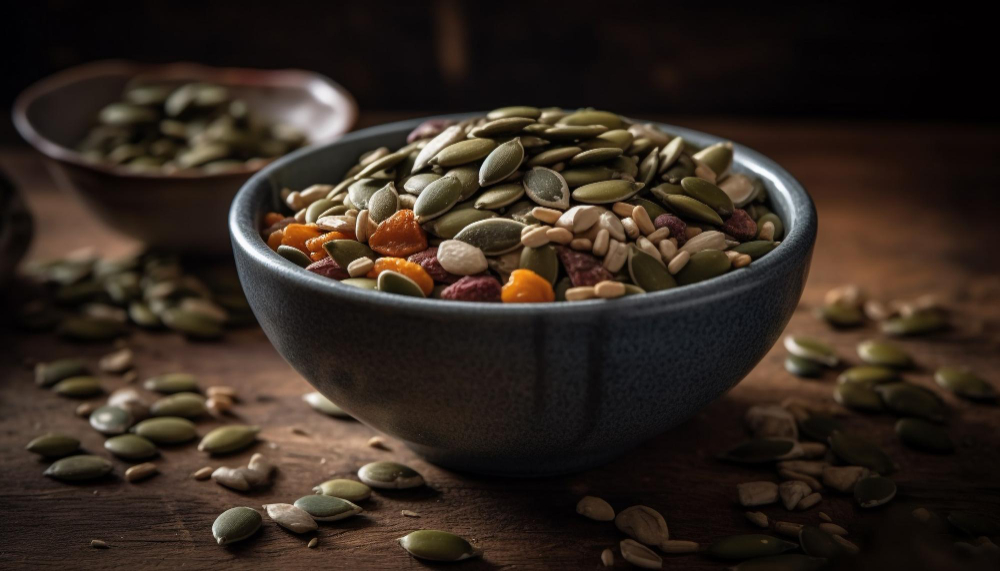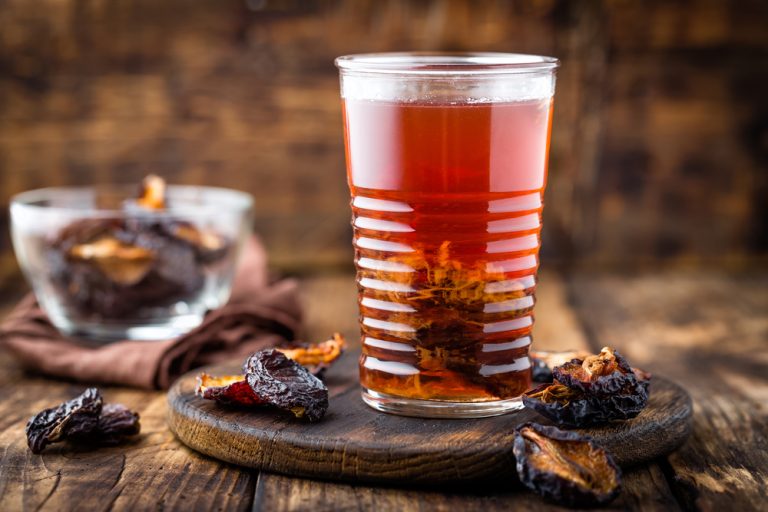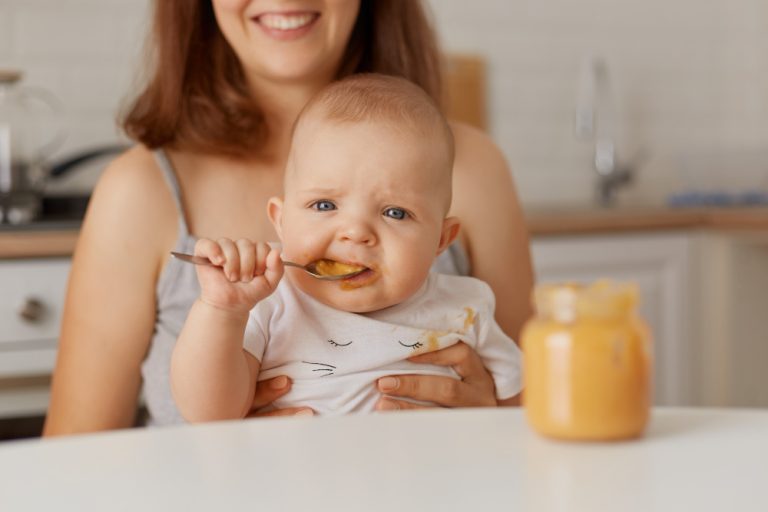Top 10 Iron-Rich Foods For Babies: Iron Deficiency in Babies
Are you wondering how to give your precious little one the best start in life with a nutritional advantage? The answer lies in incorporating iron-rich foods for babies. Iron is vital for your baby’s growth and development, supporting their overall health and well-being. Ensuring your baby receives enough iron is crucial to prevent iron deficiency anemia and promote optimal growth. But where do you start?
In our upcoming blog, ‘Top 10 Iron-Rich Foods For Babies,’ we’ll guide you through the importance of iron-rich foods for babies. We’ll provide insights on the significance of iron, offer a curated list of the top 10 iron-rich foods perfect for your little one, and share expert tips on seamlessly integrating these nutrient powerhouses into your baby’s diet.
With this valuable information, you can enhance your baby’s nutritional intake and contribute to their healthy development. Stay tuned for a comprehensive journey into the world of iron-rich baby foods.
Get ready to discover a wealth of information on iron-rich dietary choices that can positively impact your baby’s health and well-being.
Introduction to Iron-Rich Foods For Babies
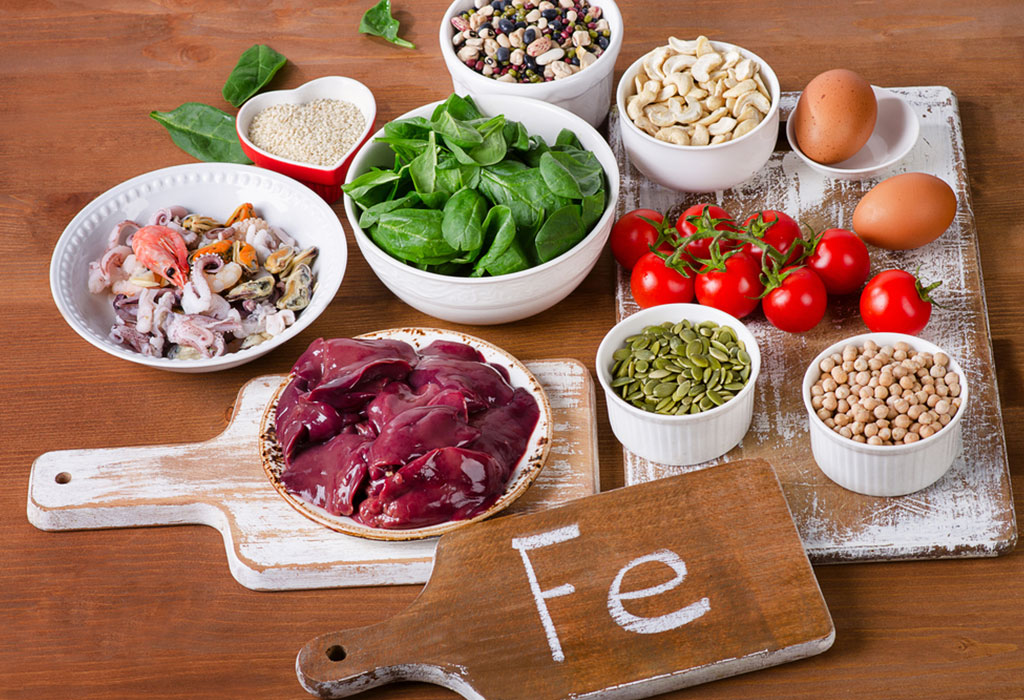
Iron is an essential nutrient that plays a crucial role in a baby’s growth and development. It is particularly important during the first two years of life when rapid brain development and increased red blood cell production occur. Including iron-rich foods in your baby’s diet can help ensure they are getting the necessary amount of iron for optimal health.
Iron is essential for the formation of hemoglobin, the protein responsible for carrying oxygen to the body’s cells. It also plays a vital role in brain development and supporting a healthy immune system. Babies need adequate iron for their cognitive development and to build their iron stores for their future needs.
Introducing iron-rich foods early on can help prevent iron deficiency anemia, a condition characterized by low iron levels in the blood. Iron deficiency anemia can lead to developmental delays, impaired cognitive function, and decreased immunity. By including iron-rich foods in your baby’s meals, you provide them with the necessary iron to support their overall health and well-being.
Some of the key benefits of including iron-rich foods in your baby’s diet are:
1. Supports brain development
Iron is essential for the growth and development of the brain, helping to ensure proper cognitive function.
2. Boosts energy levels
Iron plays a crucial role in transporting oxygen to cells, helping to maintain energy levels and prevent fatigue.
3. Strengthens the immune system
Iron supports a healthy immune system, helping babies fight off infections and illnesses.
4. Promotes healthy growth
Iron is necessary for the production of red blood cells, which carry oxygen and nutrients throughout the body, aiding in healthy growth and development.
As you introduce solid foods to your baby, it’s important to prioritize iron-rich options. In the next section, we will explore the recommended iron intake for babies and the consequences of iron deficiency in infants.
Understanding Iron Needs for Babies
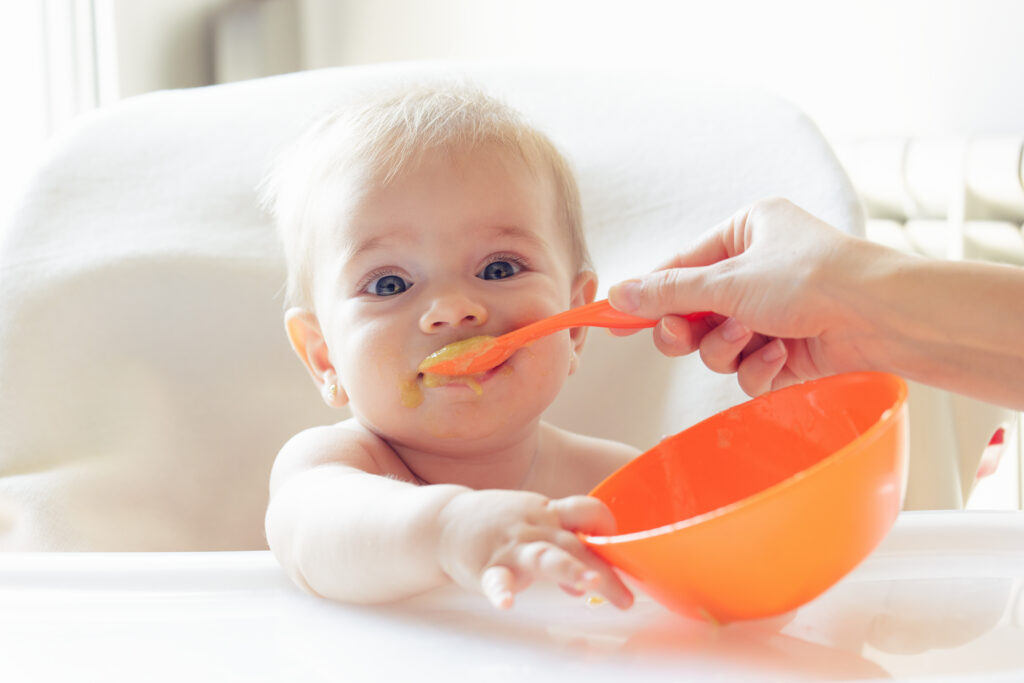
Babies have unique nutritional needs to support their rapid growth and development, and iron is one essential nutrient that plays a crucial role in their overall health. Understanding the recommended iron intake for babies and the consequences of iron deficiency is key to ensuring their well-being.
Recommended Daily Iron Intake for Babies
The American Academy of Pediatrics recommends different iron intake levels based on the age of the baby.
- From birth to 6 months, breast milk or iron-fortified infant formula provides the necessary iron for healthy growth.
- Starting around 6 months of age, babies begin to consume solid foods and their iron needs increase.
- For infants aged 7 to 12 months, the recommended daily iron intake is 11 milligrams.
- After the age of one, the requirement decreases slightly to 7 milligrams per day.
These iron intake guidelines are essential to prevent iron deficiency and support optimal growth and brain development in babies.
Consequences of Iron Deficiency in Infants
- Iron deficiency in infants can have serious consequences on their health and development.
- Without sufficient iron, babies may experience fatigue, weakness, and delayed cognitive and motor development.
- Iron deficiency anemia, characterized by low levels of iron in the blood, can impair immune function and affect the baby’s ability to fight infections.
It’s crucial to monitor iron levels and address any signs of deficiency promptly. Iron-rich foods can help prevent iron deficiency and ensure that babies meet their daily iron requirements, supporting their overall health and well-being.
Remember, it’s always important to consult with your child’s healthcare provider to determine the best approach to meet your baby’s individual iron needs.
Top 10 Iron-Rich Foods for Babies
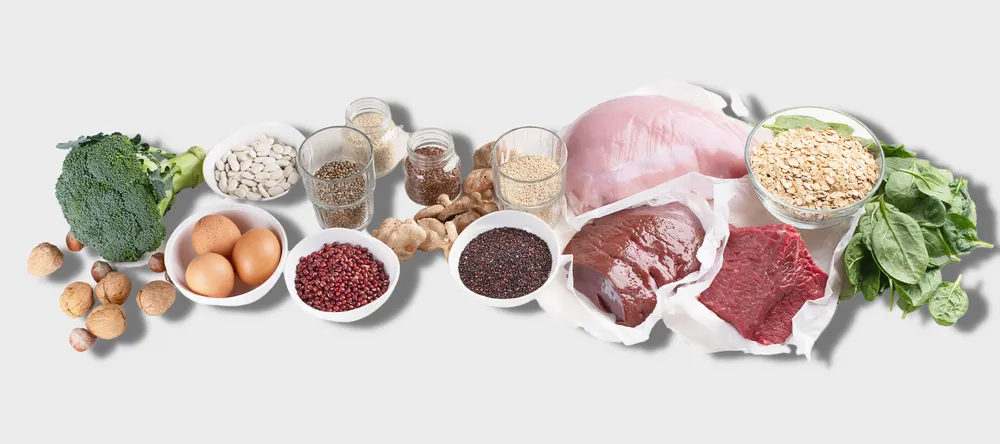
When it comes to your baby’s health and development, ensuring they receive adequate nutrition is essential. Iron, in particular, plays a crucial role in supporting their growth and overall well-being. Including iron-rich foods in your baby’s diet is an effective way to meet their iron needs and prevent iron deficiency.
Here are the top 10 iron-rich foods that are suitable for babies, along with their nutritional benefits and serving suggestions:
1. Fortified Cereal
Choose iron-fortified infant cereals as a first introduction to solid foods. These cereals are an excellent source of easily absorbable iron, providing a solid foundation for your baby’s nutrient requirements.
2. Pureed Meat
Introduce pureed meats, such as beef, chicken, or turkey, as they are rich in easily absorbable heme iron. Heme iron is more readily absorbed by the body compared to non-heme iron found in plant-based foods.
3. Lentils
Incorporate lentils into your baby’s diet, as they are a great plant-based source of iron. These legumes also provide fiber and protein, making them an excellent choice for overall nutrition.
4. Spinach
Cooked and pureed spinach is a fantastic iron-rich food for your little one. This leafy green vegetable is packed with other essential nutrients like folate and vitamin C, which enhance iron absorption.
5. Pumpkin Seeds
Finely ground pumpkin seeds can be added to purees or cereals to boost iron intake. These tiny seeds offer iron along with other important nutrients like zinc and healthy fats.
6. Quinoa
This versatile grain is not only a good source of iron but also provides protein and fiber. Incorporate quinoa into your baby’s meals as a wholesome addition to their diet.
7. Fish
Opt for iron-rich varieties of fish like salmon or trout, which also provide omega-3 fatty acids for brain development. Ensure the fish is well-cooked and bone-free before serving it to your baby.
8. Prunes
Pureed prunes are a natural and tasty way to introduce iron into your baby’s diet. Prunes are high in fiber and contain sorbitol, which aids digestion.
9. Tofu
Soft and mashed tofu is an iron-rich option for vegetarian or vegan babies. It is important to choose calcium-set tofu to ensure your little one receives adequate nutrients.
10. Beans
Including beans like black beans, kidney beans, or chickpeas in your baby’s diet provides a rich source of iron, protein, and fiber. These legumes can be pureed or mashed for easy consumption.
Remember to introduce new foods gradually and observe your baby for any signs of allergies or intolerances. Consult with your pediatrician if you have any concerns. By incorporating these iron-rich foods for babies, you can support their growth, development, and overall health.
Incorporating Iron-Rich Foods in Baby’s Diet
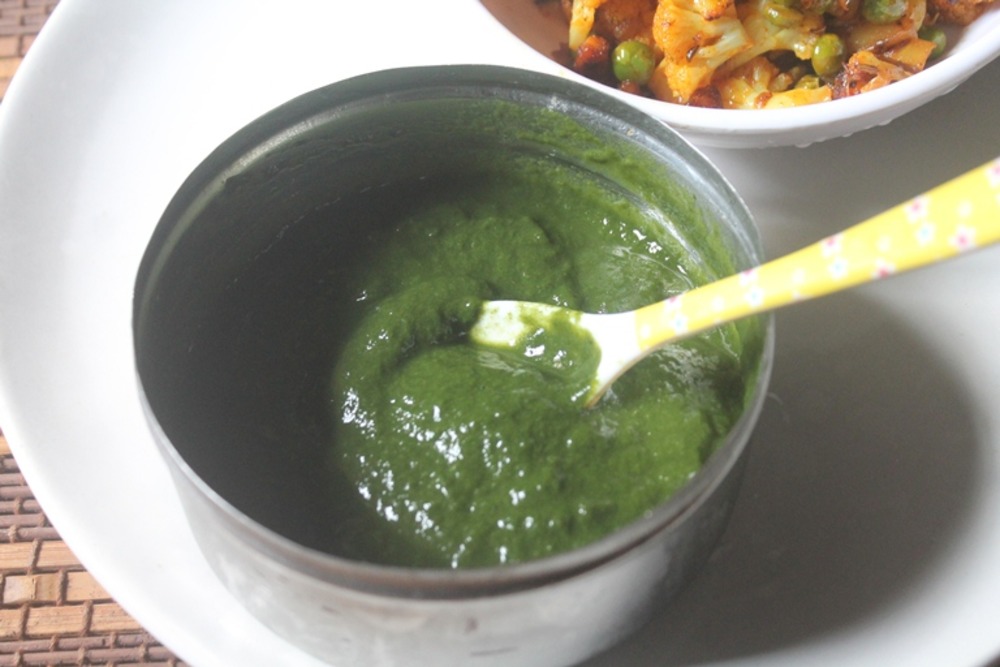
When it comes to incorporating iron-rich foods in your baby’s diet, there are several tips and ideas that can help ensure they receive the necessary iron for their growth and development. Remember, iron is an essential nutrient that plays a crucial role in the production of red blood cells and the overall functioning of your baby’s body.
Here are some practical suggestions:
1. Introduce Iron-Rich Purees
- Start by offering homemade iron-rich purees, such as spinach or kale puree.
- These leafy greens are excellent sources of iron and can be easily incorporated into your baby’s diet.
- Combine them with other vegetables or fruits to create a delicious and nutritious puree.
2. Include Iron-rich Meats and Fish
- Once your baby starts eating solids, introduce iron-rich meats like beef, chicken, and turkey.
- These meats provide heme iron, which is easily absorbed by the body.
- Additionally, fish such as salmon and tuna are excellent sources of iron and omega-3 fatty acids.
3. Offer Iron-Fortified Cereals
- Iron-fortified cereals, specifically designed for infants, are an easy way to ensure your baby’s iron needs are met.
- These cereals usually contain added iron, making them a convenient source of this essential nutrient.
4. Pair Iron-Rich Foods with Vitamin C
- Did you know that vitamin C enhances iron absorption?
- Pair iron-rich foods with fruits high in vitamin C, such as oranges, strawberries, or kiwi.
- For example, you can prepare a puree with spinach and oranges or serve iron-fortified cereal with mashed strawberries.
5. Include Legumes and Beans
- Legumes and beans, such as lentils, chickpeas, and kidney beans, are rich sources of iron and can be introduced to your baby as they transition to more solid foods.
- Consider mashing or pureeing them for easier consumption.
6. Opt for Iron-Enriched Baby Foods
- Look for baby food options that are specifically fortified with iron.
- These can provide a convenient way to ensure your baby gets enough iron in their diet.
Remember that variety and balance are key when incorporating iron-rich foods into your baby’s meals and snacks. Aim for a mix of different food groups to ensure a diverse range of nutrients. Consult your child’s doctor or a pediatric nutritionist for personalized recommendations based on your baby’s needs.
By following these tips, you can help support your baby’s iron intake and promote their healthy growth and development.
Sources: Mayo Clinic. (2021). Iron deficiency in children: Prevention tips for parents.
Importance of Vitamin C for Iron Absorption
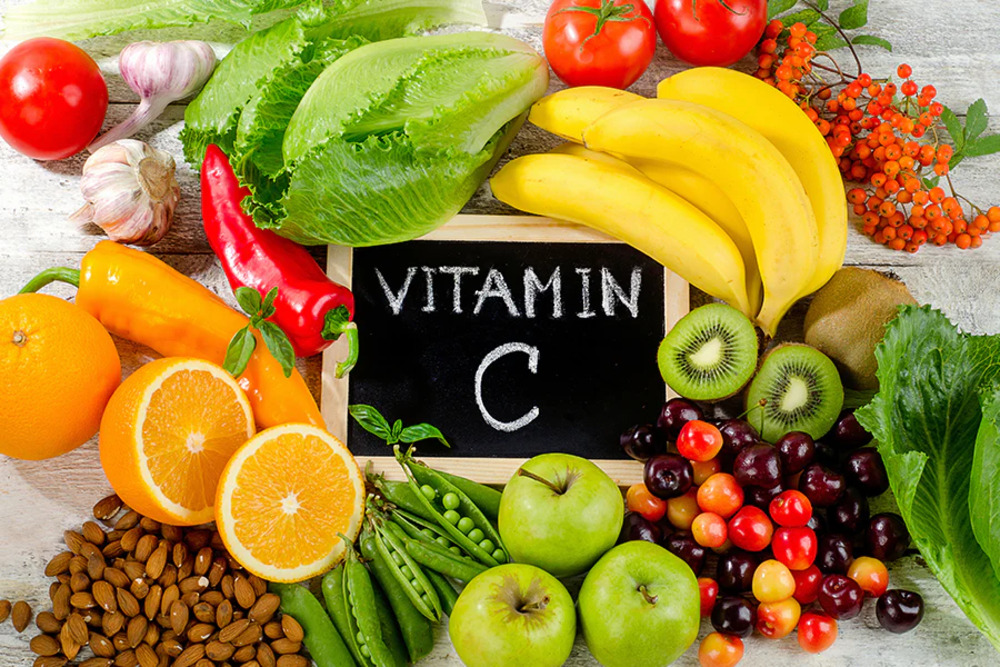
Vitamin C plays a crucial role in enhancing the absorption of iron in the body, making it an essential nutrient to consider when introducing iron-rich foods to your baby. By pairing iron-rich foods with vitamin C sources, you can optimize your baby’s iron absorption and ensure they receive maximum nutritional benefits.
When iron and vitamin C are consumed together, vitamin C helps convert the dietary iron into a form that is more readily absorbed by the body. This means that including foods rich in vitamin C alongside iron-rich foods can significantly boost your baby’s iron intake.
Some excellent sources of vitamin C that you can combine with iron-rich foods include citrus fruits like oranges and grapefruits, strawberries, kiwi, tomatoes, bell peppers, and papayas. These fruits not only provide a vibrant burst of flavor but also enhance the nutritional value of your baby’s meals.
To incorporate iron and vitamin C together, try serving a side of citrus slices with iron-fortified cereal, adding bell peppers to lentil soup, or including strawberries in a spinach and chicken puree. These combinations not only enhance the taste and variety of your baby’s meals but also maximize their intake of iron and vitamin C.
Remember, it’s important to consult your child’s doctor or healthcare professional before making any changes to their diet. They can provide personalized recommendations based on your baby’s specific needs.
By introducing the right combinations of iron-rich foods and vitamin C sources, you can support your baby’s iron absorption and contribute to their overall health and well-being.
Note: Make sure to introduce foods containing vitamin C gradually if your baby is new to solid foods, as they may be more acidic and have a higher risk of causing digestive discomfort.
Preventing Iron Deficiency Anemia in Infants
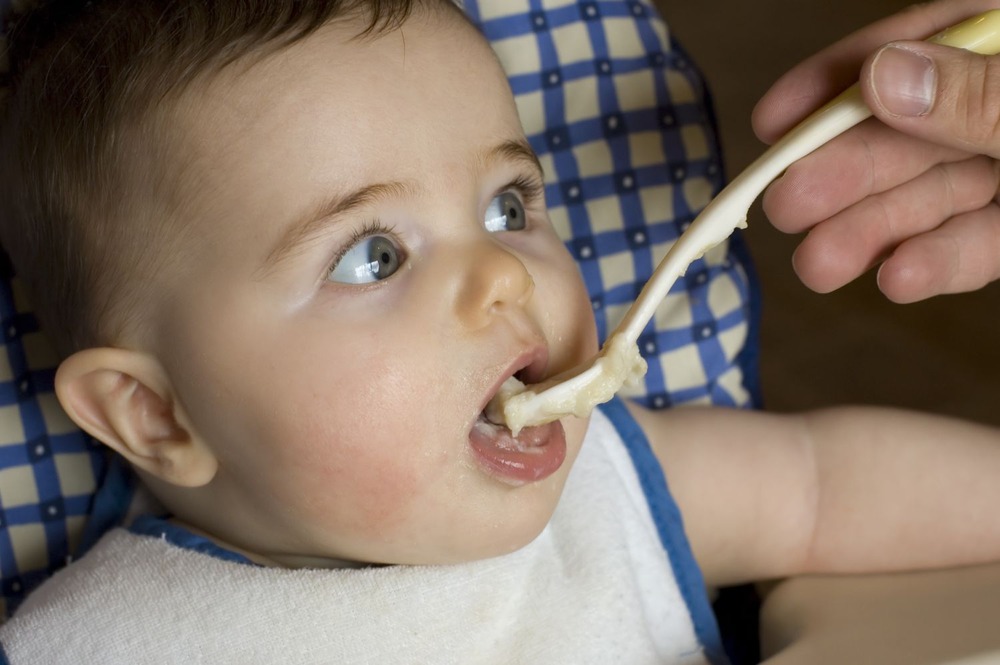
Iron deficiency anemia is a condition that occurs when there is a lack of iron in the body, leading to a decrease in the production of red blood cells. This condition is particularly concerning for infants, as iron is crucial for their rapid growth and development. Fortunately, there are steps parents can take to prevent iron deficiency anemia in their little ones.
Breastfeeding mothers can play a vital role
- Breast milk is the ideal source of nutrition for babies.
- It contains a sufficient amount of iron to meet their needs during the first six months of life.
- However, as babies grow, their iron requirements increase, and breast milk alone may not be enough to meet these needs.
- To prevent iron deficiency anemia, breastfeeding mothers should consider introducing iron-rich foods to their baby’s diet around six months of age.
Guidance on iron-fortified formulas
- Iron-fortified formulas are available for mothers who are not breastfeeding or are supplementing with formula.
- These formulas contain added iron to ensure that infants receive an adequate supply of this essential nutrient.
- Your pediatrician can offer guidance on choosing the most appropriate iron-fortified formula for your baby.
Introducing iron-rich foods as solids
- When your baby is ready to start solids, incorporating iron-rich foods into their diet is crucial.
- Some excellent options include iron-fortified cereals, pureed meats, fish, beans, and dark green leafy vegetables like spinach and kale.
- These foods provide a concentrated source of iron and are easily digestible for your little one.
Pairing iron-rich foods with vitamin C sources
- To maximize iron absorption, it’s beneficial to combine iron-rich foods with sources of vitamin C.
- Vitamin C enhances the body’s ability to absorb iron.
- Consider offering pureed fruits rich in vitamin C, such as strawberries or oranges, alongside iron-rich foods for a flavorful and nutritious combination.
Remember, preventing iron deficiency anemia in infants requires a proactive approach. Parents can help their babies maintain healthy iron levels and support their overall growth and development by providing a diet rich in iron and ensuring proper absorption. Consult your pediatrician for personalized advice and recommendations based on your baby’s specific needs.
Iron-Fortified Baby Foods and Supplements
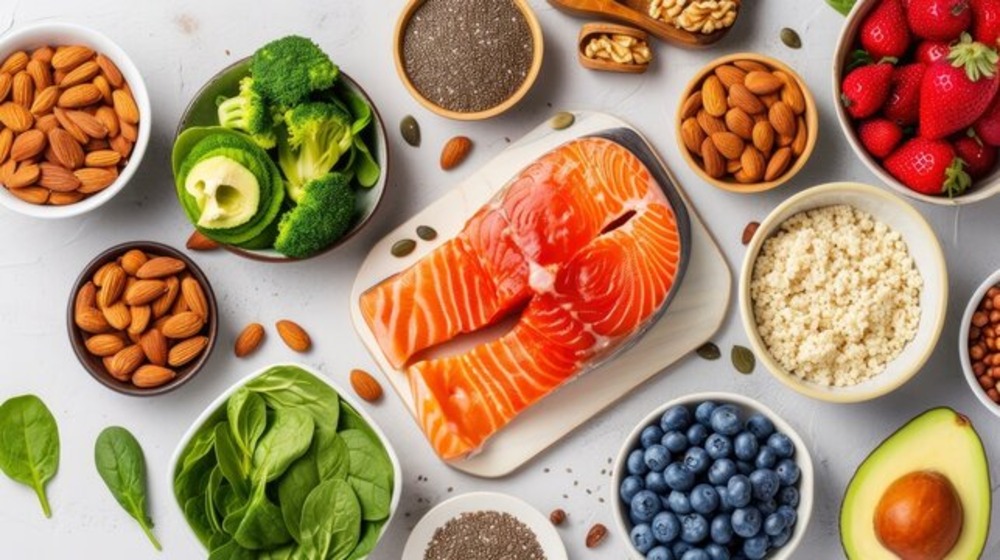
Iron-fortified baby foods and supplements play a crucial role in ensuring that your baby receives an adequate intake of iron. These specially formulated products are designed to provide the necessary iron levels to support your baby’s growth and development.
Here are some key points to consider when it comes to iron-fortified baby foods and supplements:
1. Why choose iron-fortified products?
- Iron-fortified baby foods and supplements are an excellent choice for infants, especially when their iron stores from birth begin to deplete.
- These products are specifically designed to meet your baby’s iron requirements and help prevent iron deficiency anemia.
2. When to introduce iron-fortified foods?
- According to the American Academy of Pediatrics, iron-fortified cereals can be introduced as early as 4-6 months in an infant’s diet.
- These cereals are often their first solid food and serve as a great source of iron.
- Consult your child’s doctor for specific recommendations based on their developmental milestones.
3. Choosing the right type of iron-fortified products
- There are a variety of iron-fortified baby foods available, including cereals, purees, and snacks.
- Look for products that are specifically labeled as iron-fortified and age-appropriate for your baby.
- This ensures that they receive the necessary iron while also enjoying a variety of flavors and textures.
4. Combining iron-fortified foods with a balanced diet
- While iron-fortified foods are important, it’s equally crucial to incorporate a diverse range of nutrient-rich foods into your baby’s diet.
- Aim for a balanced meal plan that includes a variety of iron-rich vegetables, fruits, meats, beans, and grains.
5. Supplements for at-risk infants
- Some infants, such as those born prematurely or with low birth weight, may require additional iron supplements as recommended by their healthcare provider.
- Always consult with your child’s doctor before introducing any supplements.
Remember, iron-fortified baby foods and supplements are valuable tools in ensuring your baby receives sufficient iron for optimal growth and development. However, they should be used in conjunction with a well-rounded and nutrient-rich diet.
Making Iron-Rich Baby Food Purees
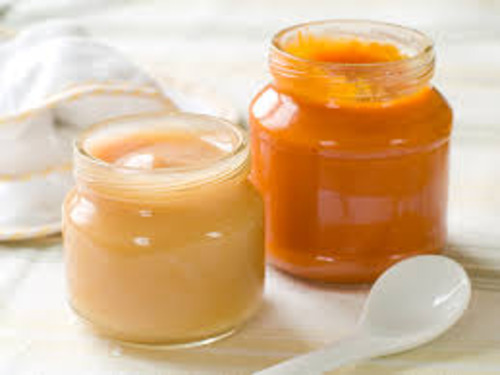
Making homemade iron-rich baby food purees is a great way to ensure your little one gets the essential nutrients they need for optimal growth and development. By including a variety of iron-rich ingredients in these purees, you can provide your baby with a nutritious and delicious meal.
Here are a few easy recipes to get you started:
Spinach and Sweet Potato Puree
Ingredients:
- 1 cup of fresh spinach leaves
- 1 small sweet potato, peeled and diced
- Water (for steaming)
Instructions to cook:
1. Steam the spinach and sweet potato until they are tender.
2. Blend the steamed spinach and sweet potato together until smooth.
3. If needed, add a little water to achieve the desired consistency.
4. Serve the puree to your baby in a spoon-friendly blend.
Lentil and Carrot Puree
Ingredients:
- 1/4 cup of cooked lentils
- 1 small carrot, peeled and diced
- Water (for boiling)
Instructions to cook:
1. Boil the lentils and carrot until they are soft.
2. Drain the water and allow the ingredients to cool slightly.
3. Blend the cooked lentils and carrot together until smooth.
4. Adjust the consistency with water if necessary.
5. Offer this iron-rich puree to your baby in a suitable serving size.
Beetroot and Quinoa Puree
Ingredients:
- 1 small beetroot, peeled and diced
- 1/4 cup of cooked quinoa
- Water (for boiling)
Instructions to cook:
1. Boil the beetroot until it is tender.
2. Cook the quinoa separately according to package instructions.
3. Blend the boiled beetroot and cooked quinoa until smooth.
4. Add water as needed to achieve a suitable texture for your baby.
5. Introduce this vibrant and nutrient-packed puree to your little one.
Remember to introduce one new ingredient at a time and observe for any allergic reactions. As your baby grows, you can gradually introduce more iron-rich foods and expand their palate.
Homemade purees offer a great opportunity to customize the flavors and textures according to your baby’s preferences. Enjoy the process of nourishing your little one with these homemade iron-rich baby food purees!
The Final Note: Top 10 Iron-Rich Foods For Babies
In conclusion, incorporating iron-rich foods into your baby’s diet is a significant step towards ensuring their healthy growth and development. By prioritizing nutrient-dense options and paying attention to the recommended iron intake for babies, you can provide them with a strong nutritional foundation.
As you venture on this journey of introducing solid foods to your little one, remember the importance of iron-rich foods for babies. By including iron-rich foods in their meals, you are not only supporting their immediate health but also setting the stage for a lifetime of well-being.
Keep exploring the top 10 iron-rich foods for babies and make informed choices that positively impact your baby’s health. Here’s to nourishing and nurturing your precious bundle of joy with the best nature has to offer!

